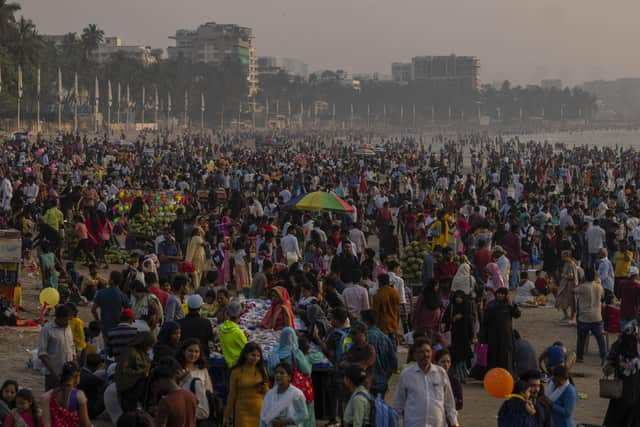World’s population set to hit eight billion as growth starts to slow
Among them is Nigeria and over the next three decades the West African nation’s population is expected to soar even more – from 216 million this year to 375 million, the UN says.
That will make Nigeria the fourth-most populous country in the world after India, China and the United States.
Advertisement
Hide AdAdvertisement
Hide Ad“We are already overstretching what we have – the housing, roads, the hospitals, schools – everything is overstretched,” said Gyang Dalyop, an urban planning and development consultant in Nigeria.


The UN’s Day of 8 Billion milestone is more symbolic than precise, officials are careful to note in a wide-ranging report released over the summer that makes some staggering projections.
The upward trend threatens to leave even more people in developing countries further behind, as governments struggle to provide enough classrooms and jobs for a rapidly growing number of youth, and food insecurity becomes an even more urgent problem.
Nigeria is among eight countries the UN says will account for more than half the world’s population growth between now and 2050, along with fellow African nations Congo, Ethiopia and Tanzania.
“The population in many countries in sub-Saharan Africa is projected to double between 2022 and 2050, putting additional pressure on already strained resources and challenging policies aimed to reduce poverty and inequalities,” the UN report said.
The body projected the world’s population will reach around 8.5 billion in 2030, 9.7 billion in 2050 and 10.4 billion in 2100.
Other countries with the fastest growing populations are Egypt, Pakistan, the Philippines and India, which is set to overtake China as the world’s most populous nation next year.
Rapid population growth also means more people vying for scarce water resources and leaves more families facing hunger as climate change increasingly impacts crop production in many parts of the world.
Advertisement
Hide AdAdvertisement
Hide Ad“There is also a greater pressure on the environment, increasing the challenges to food security that is also compounded by climate change,” said Dr Srinath Reddy, president of the Public Health Foundation of India.
“Reducing inequality while focusing on adapting and mitigating climate change should be where our policy makers’ focus should be.”
Experts say the bigger threat to the environment is consumption, which is highest in developed countries not undergoing big population increases.
“Global evidence shows that a small portion of the world’s people use most of the Earth’s resources and produce most of its greenhouse gas emissions,” said Poornima Muttreja, executive director of the Population Foundation of India.
“Over the past 25 years, the richest 10 per cent of the global population has been responsible for more than half of all carbon emissions.”
According to the UN, the population in sub-Saharan Africa is growing at 2.5 per cent per year — more than three times the global average. Women in sub-Saharan Africa on average have 4.6 births, twice the current global average of 2.3.
Comments
Want to join the conversation? Please or to comment on this article.